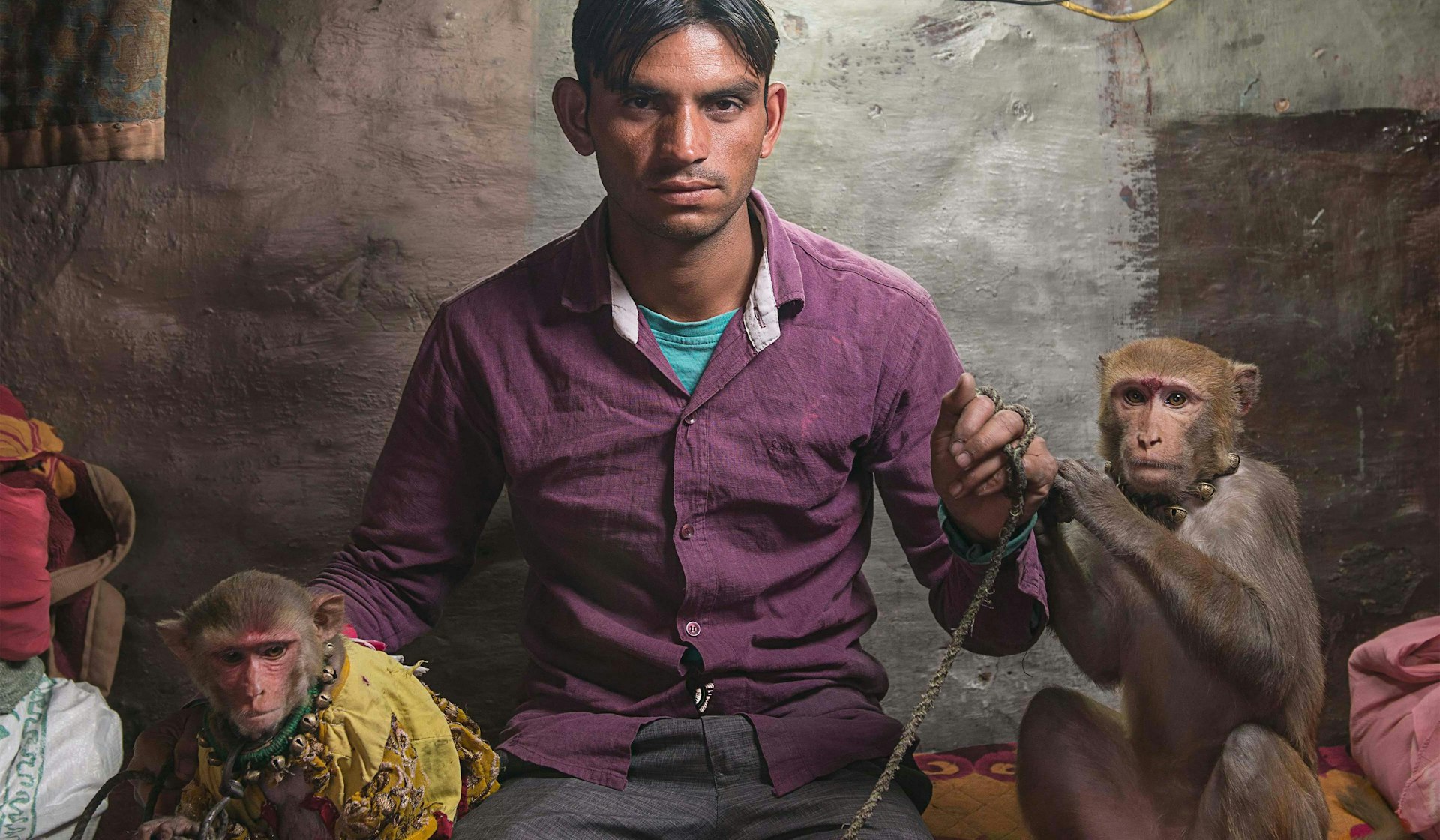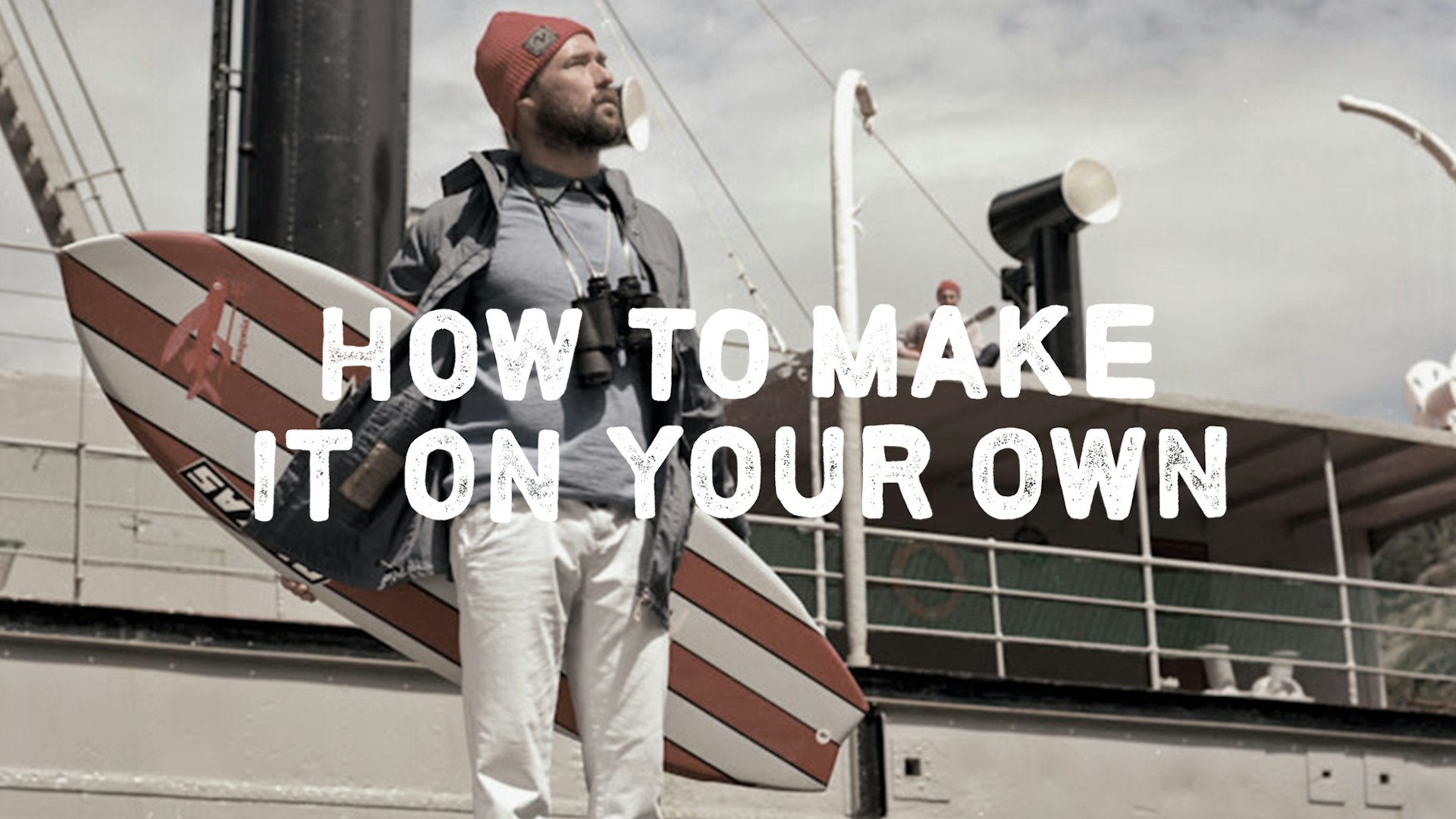
The Basque surfers who took on the industry by founding a festival of their own
- Text by Alex King
‘Who are these freaks from the Basque country?’ That’s the reaction of the mainstream surf industry to many of the San Sebastián Surf Film Festival’s audacious stunts, explains founder Sancho Rodriguez.
Now approaching its fourteenth edition, the festival was the first of its kind anywhere in the world when it was founded in 2003. It’s a celebration of cinema and independent-minded surf culture, but most importantly a place where art and music come together with surfing and activism. The festival’s success hasn’t stopped Sancho and his crew frequently using their platform to put a big middle finger up to everything they dislike in wider surfing culture – but always with a smile.
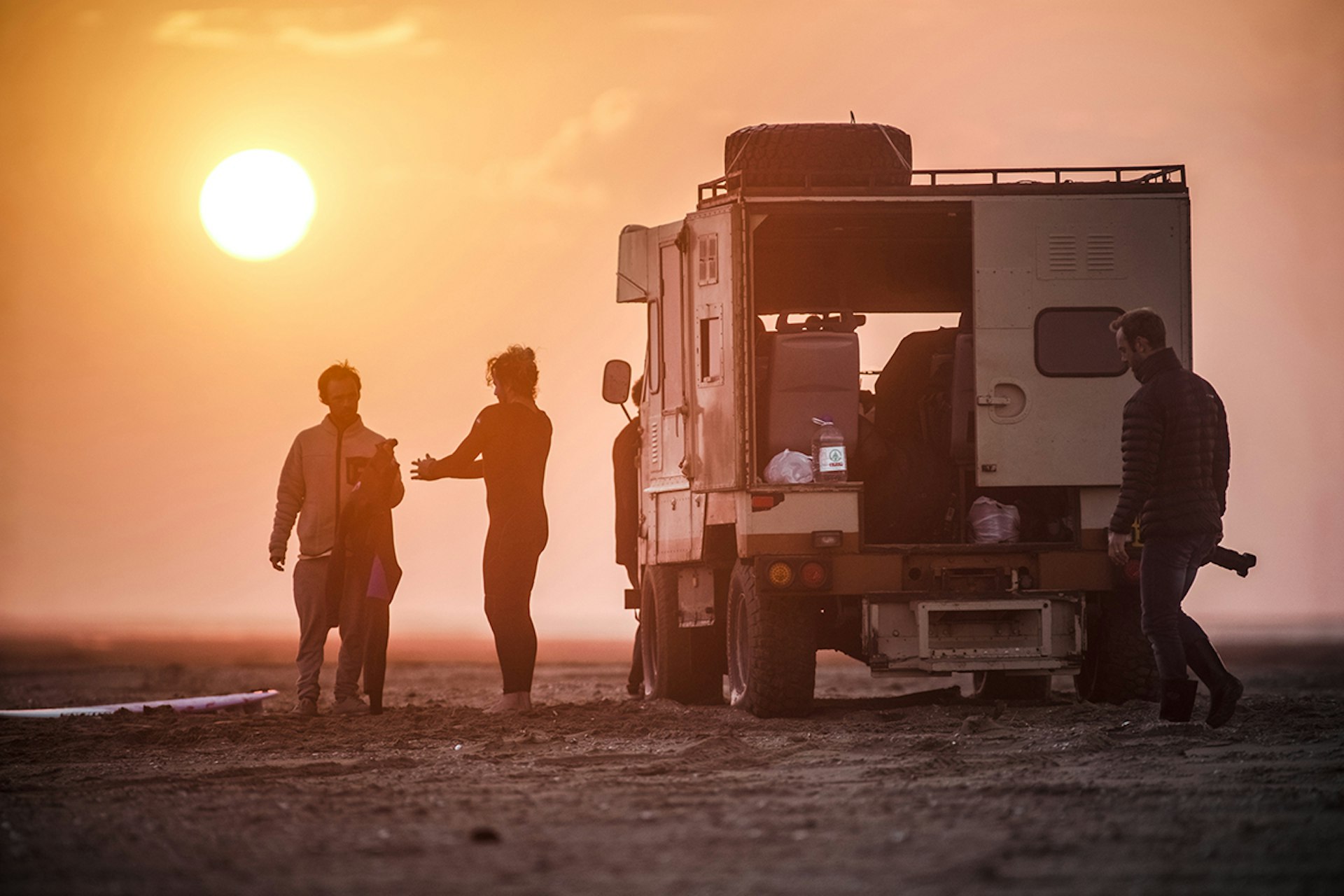
Still from Radical Times in Namibia by Igor Bellido – screening at this year’s festival
“Our role as a festival is to be fun, but also to get the community together to address the direction our culture is moving,” Sancho explains. “We’ll keep on celebrating the community and the good things in surfing but I think it’s our role to be a pain in the arse to everything we think is wrong.”
This year the festival’s enemy is Surfzilla. The bitter irony of surfing’s now likely inclusion in the 2020 Tokyo Olympics is that three natural beach breaks could be destroyed to make way for construction of Olympic venues. The proposed competition will also take place on an artificial wave pool – anathema to Sancho and his rowdy crew of Basque surfers. So they commissioned artist and activist Miguel Brieva to create an R Crumb-style cartoon that satirises the preparations for the games, the destruction of natural waves, the corporate interests involved and the sidelining of everyday surfers.
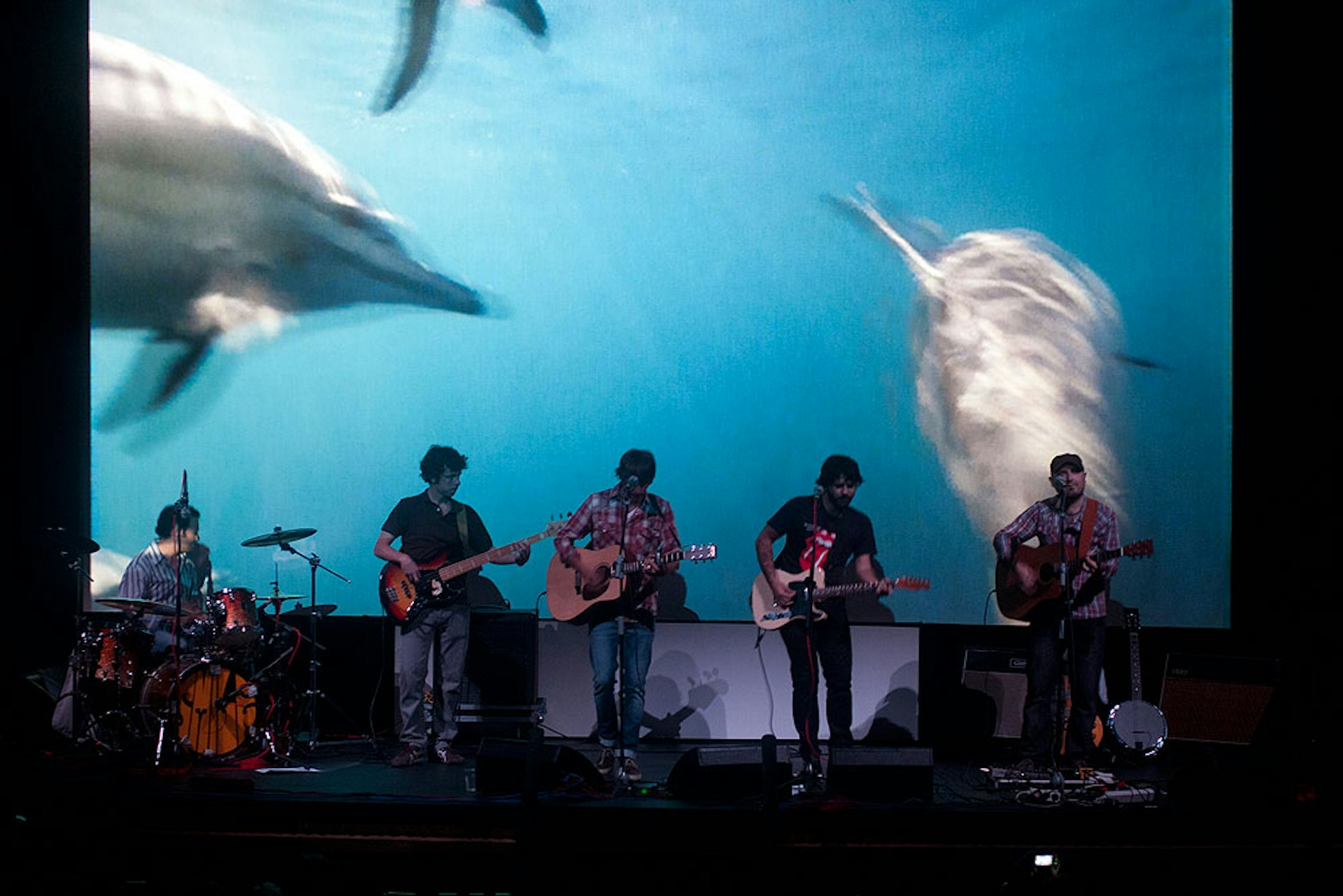
The fiery activist streak has been at the heart of the festival’s identity since the beginning. When the Prestige oil spill struck in November 2002, just before the first edition in Summer 2003, it galvanised the team to use the festival in fighting to protect the natural environment that makes surfing possible. Ever since, they’ve helped provoke a soul-searching and honest debate about surfing’s role in development, and the often negative consequences of development for natural coastlines and waterways.
The group never raise their concerns in dry tones – but often through engaging stunts. In 2012, they commissioned sand artist Jim Denevan to create a temporary work at Sancho’s home spot Mundaca to highlight the destruction of natural wave breaks. In 2010, they drove a fake-tanned Kelly Slater lookalike in a stretched limousine into central San Sebastián and gave him a full hero’s welcome to make a mockery of the growing celebrity circus within the industry and the over-commercialisation of the culture.
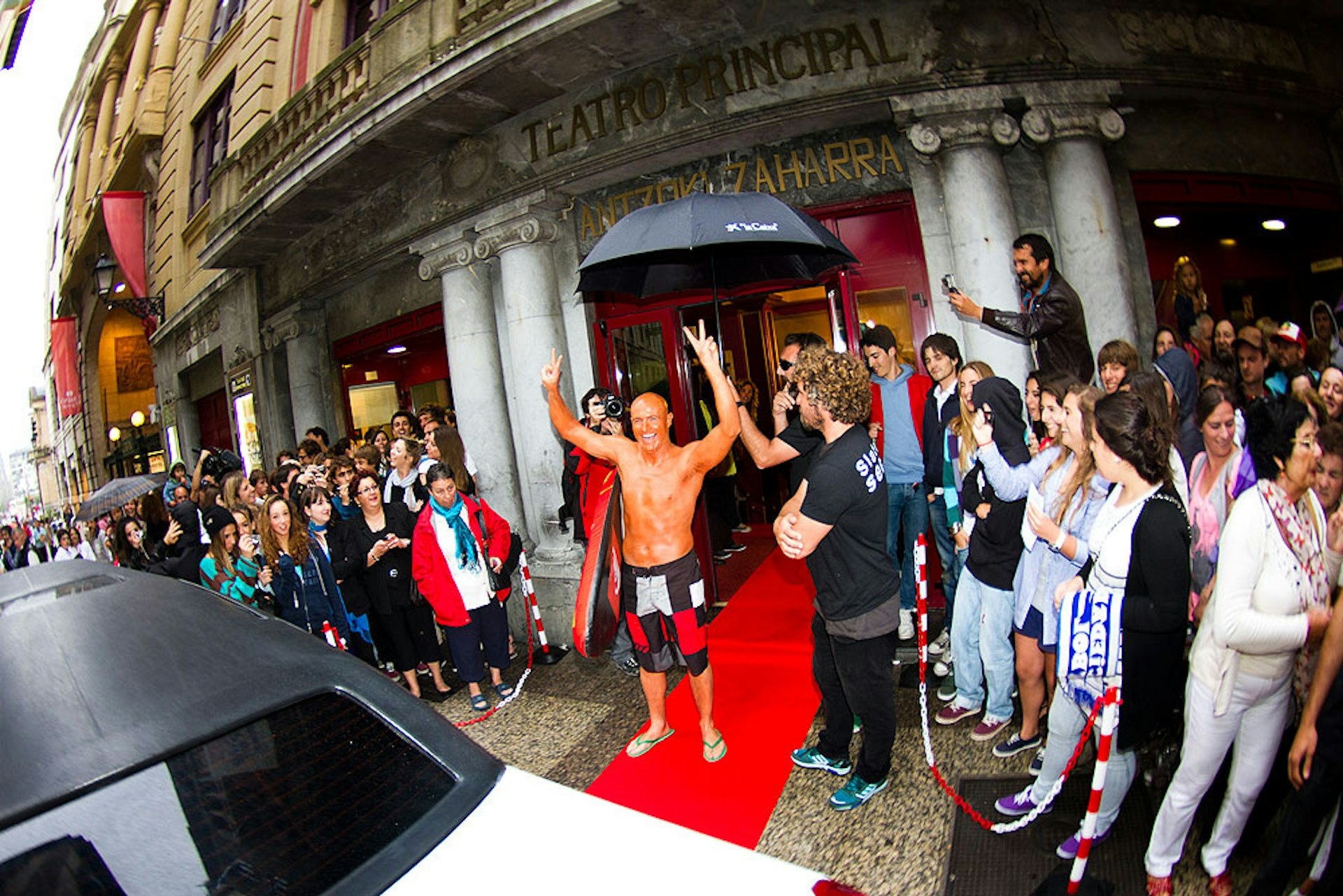
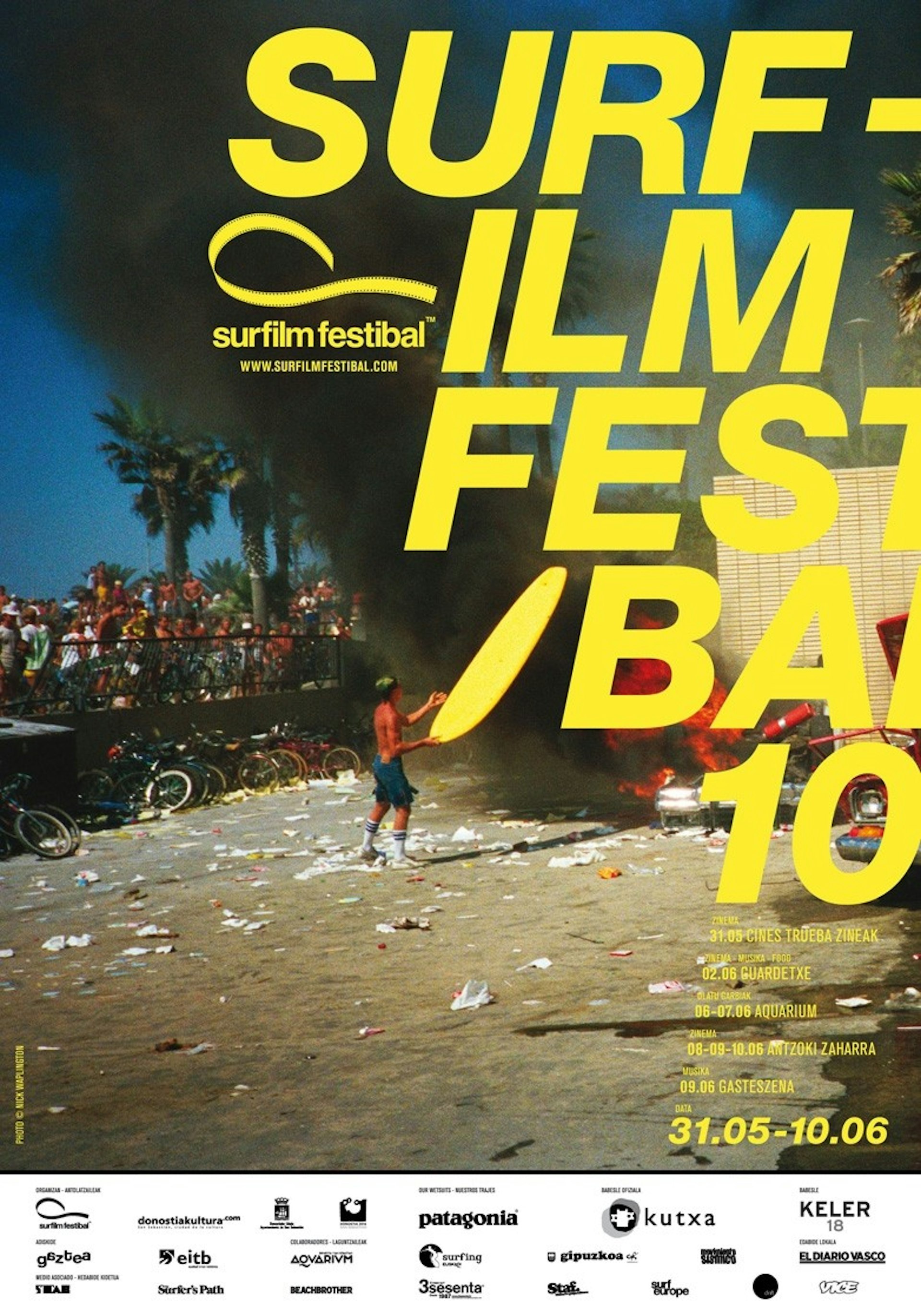
Hot on the heels of the Arab Spring, they collaborated with photographer Nick Waplington, who had captured a surf riot at Huntington Beach in California. “The poster (above) and exhibition were a symbol of a crisis in the industry, in the values of society,” Sancho explains. “Of course, we did this and the global surf media didn’t give us one page to talk about this sort of thing. They didn’t understand.”
Despite the financial strains of keeping an independent festival alive, Sancho and his team have always managed to made it work. Their lo-fi The Life Aquatic mockumentary featuring Kepa Acero taking on the role of surfing’s Steve Zissou was all shot at the festival venues in San Sebastián – even the voyage to a desert island.
Sancho long wrestled with the fear that events like this would lead to the over-promotion of surfing, which for him and his team has always been an alternative, counter-cultural activity. But recently he’s made his piece that the festival can be a powerful tool to encourage the growth of a vibrant community that avoids the excesses of mainstream surfing. “The festival is a medium of expression, it’s a tool to communicate,” Sancho explains. “Our festival is absolutely independent. We do whatever we want at the expense of everything else. The festival is a reflection of our surf lives, my friends and the wider surfing community. That’s why we keep doing what we do.”
HOW DO I CREATE AN EVENT THAT RESONATES?
Start riots
“Back in the early years we were really crazy. We would have bands at the height of their fame and everybody would be trying to break down the doors to get into the venue. We’ve chilled out a little but since those days.”
Be inventive
“There are always new ways to do things. You don’t have to be boring. We like to do things first, like our tongue-in-cheek experiment with “3D Analogue Live”. It’s a new format we invented for our Point Break screening: we screened the film with a live band playing the soundtrack and then we had actors playing around with the audience, throwing balls at them and stuff.”
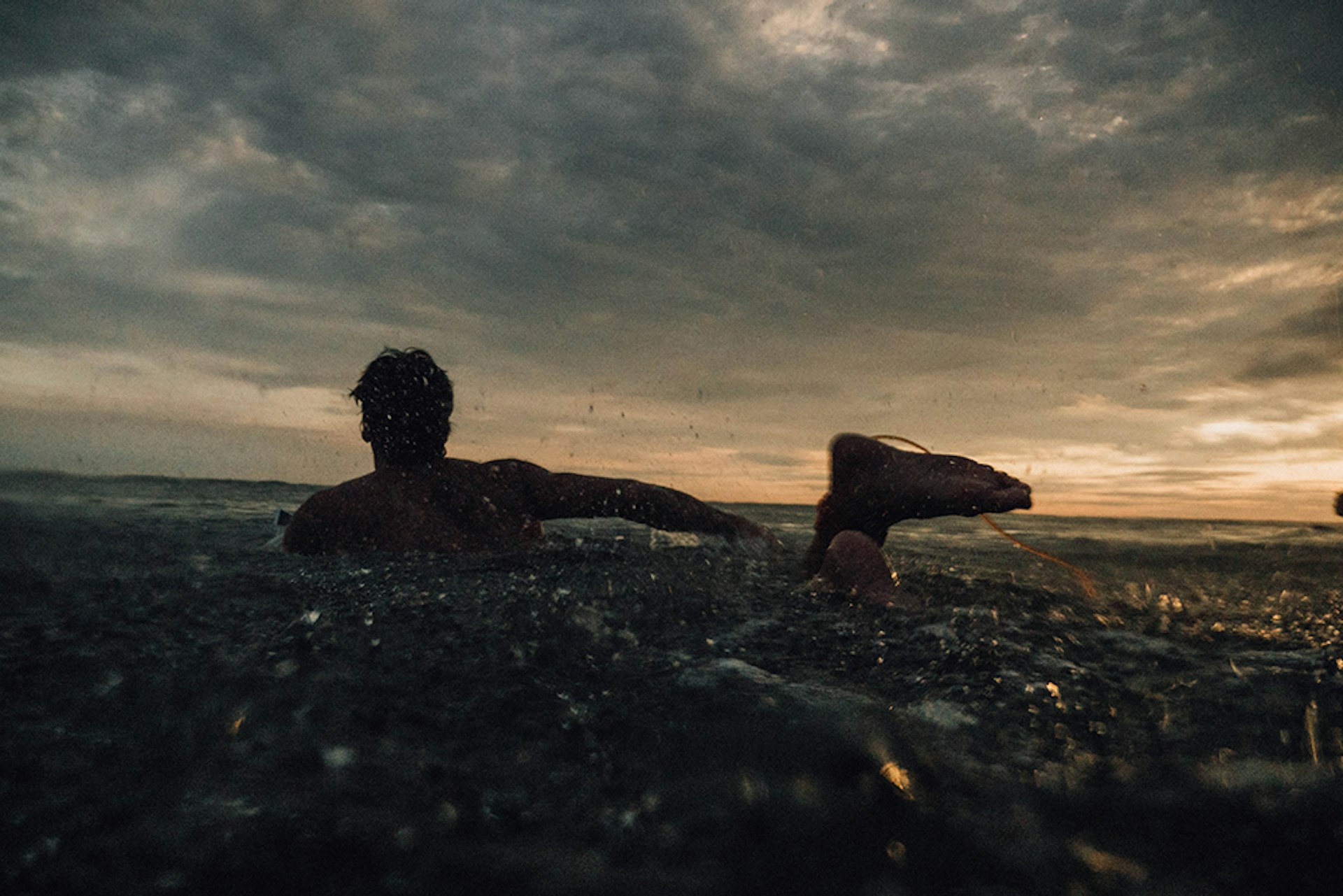
Still from Brother by Sebastien Zanella – screening at this year’s festival
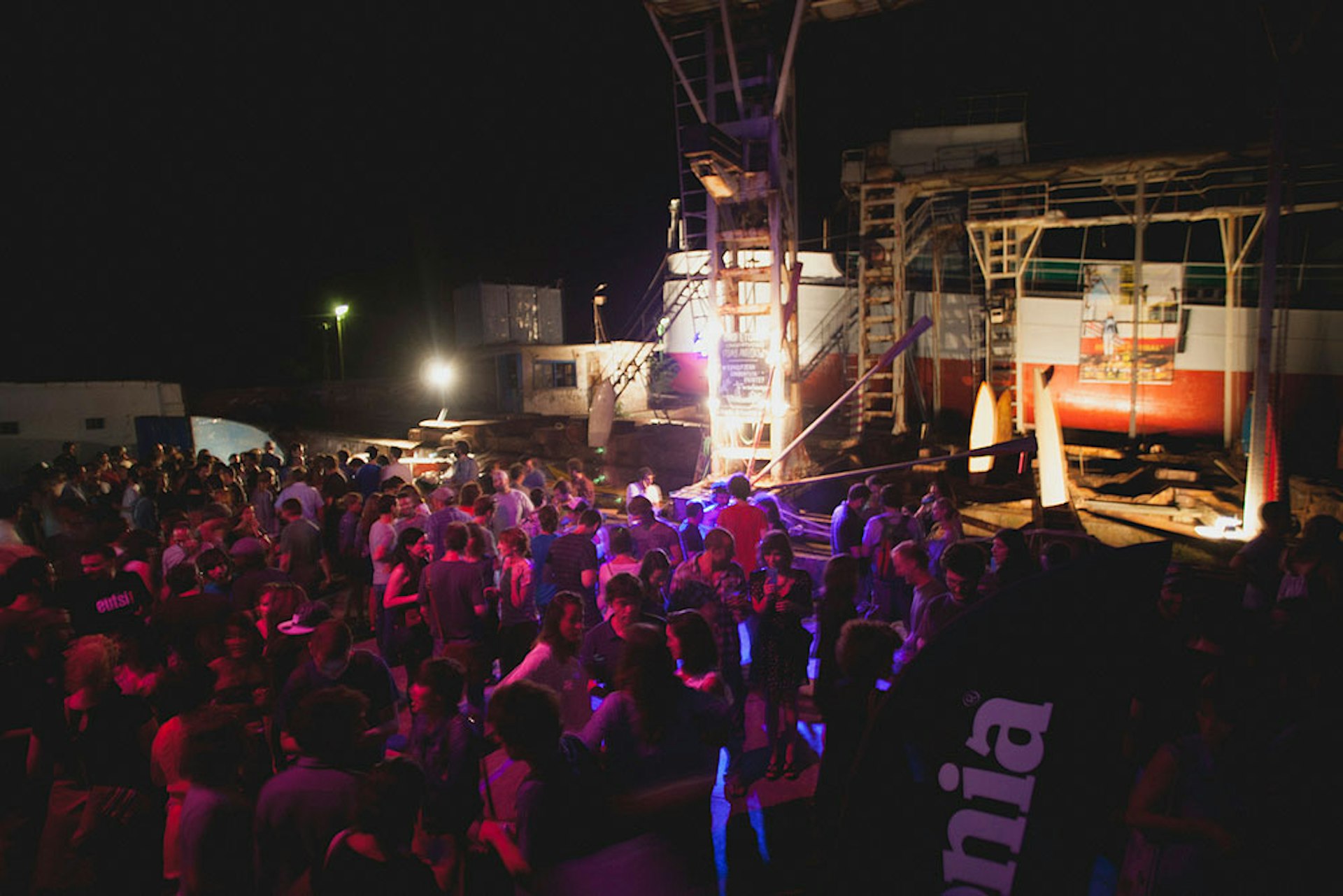 Stunts with heart
Stunts with heart
“We make sure everybody has fun when we put on stunts. Sure, they help promote the festival but we only want to do stunts with heart: stunts that include art, humour and shining a light on real issues.”
Solidarity with other surfers
“I think Japan has a fascinating culture, and a fascinating surf culture. When the Fukushima disaster struck, we knew we had to do something with the surfers we knew out there. It’s our way of showing solidarity and bringing sufers from around the world together.”
Have no idols
“We don’t buy into celebrities. We’re happy to take the piss out of anyone, Kelly Slater, whoever. We support projects and people we respect but we have no idols who are above mockery. We’ve never had VIP areas or cocktail lounges, everyone’s always mixed together.”
Find out more about San Sebastián Surf Film Festival, June 22-26.
Enjoyed this article? Like Huck on Facebook or follow us on Twitter.
